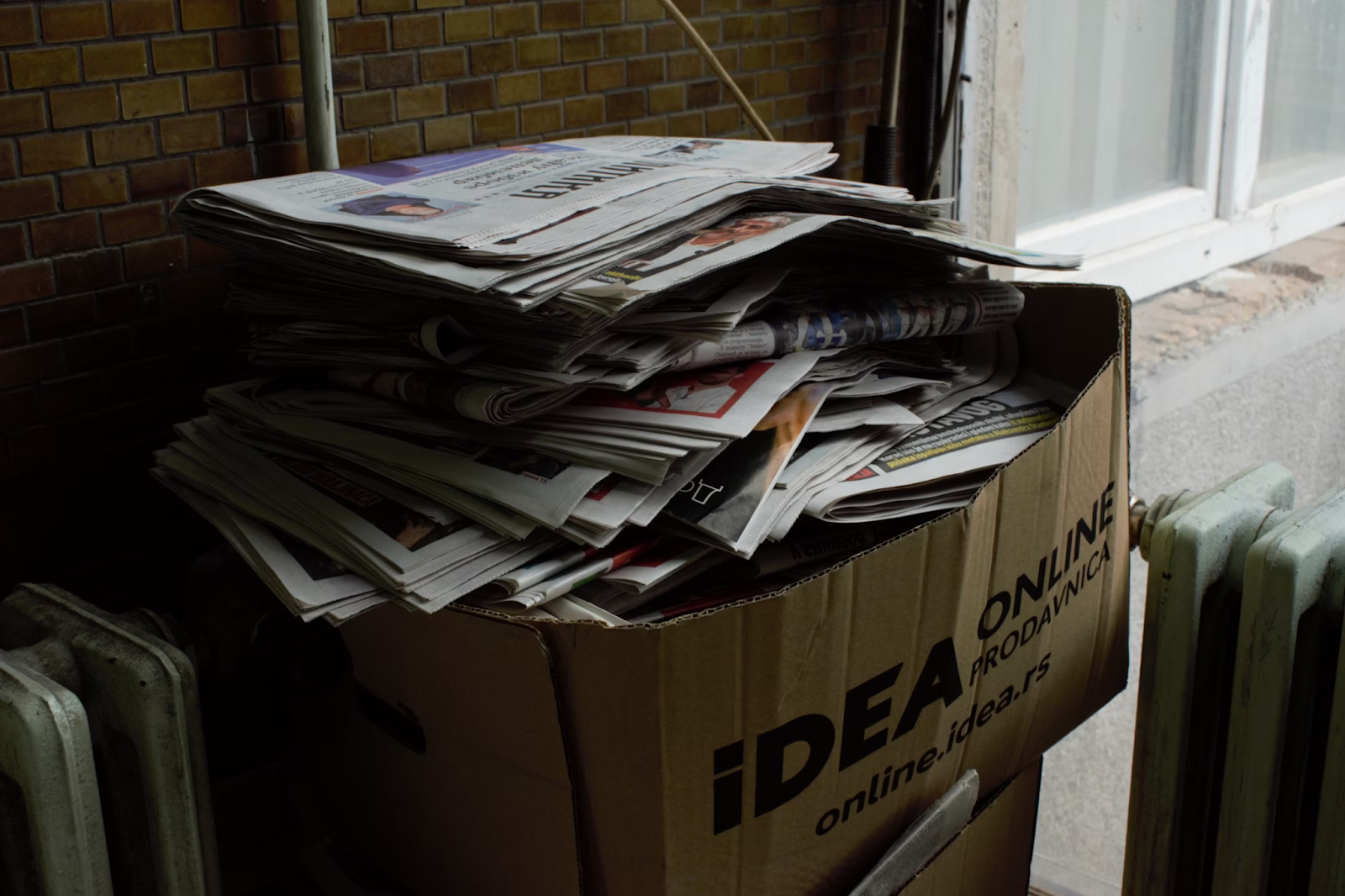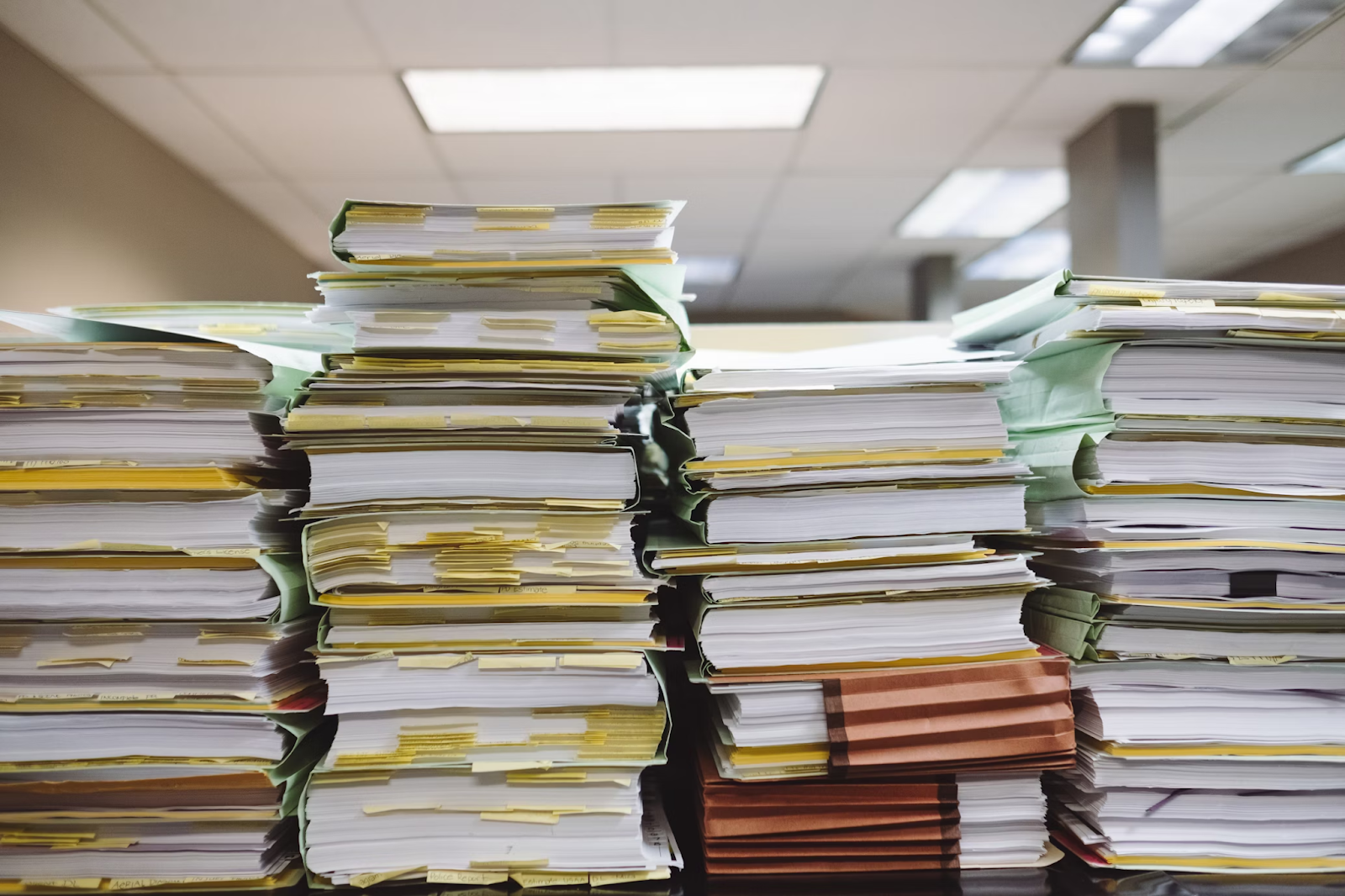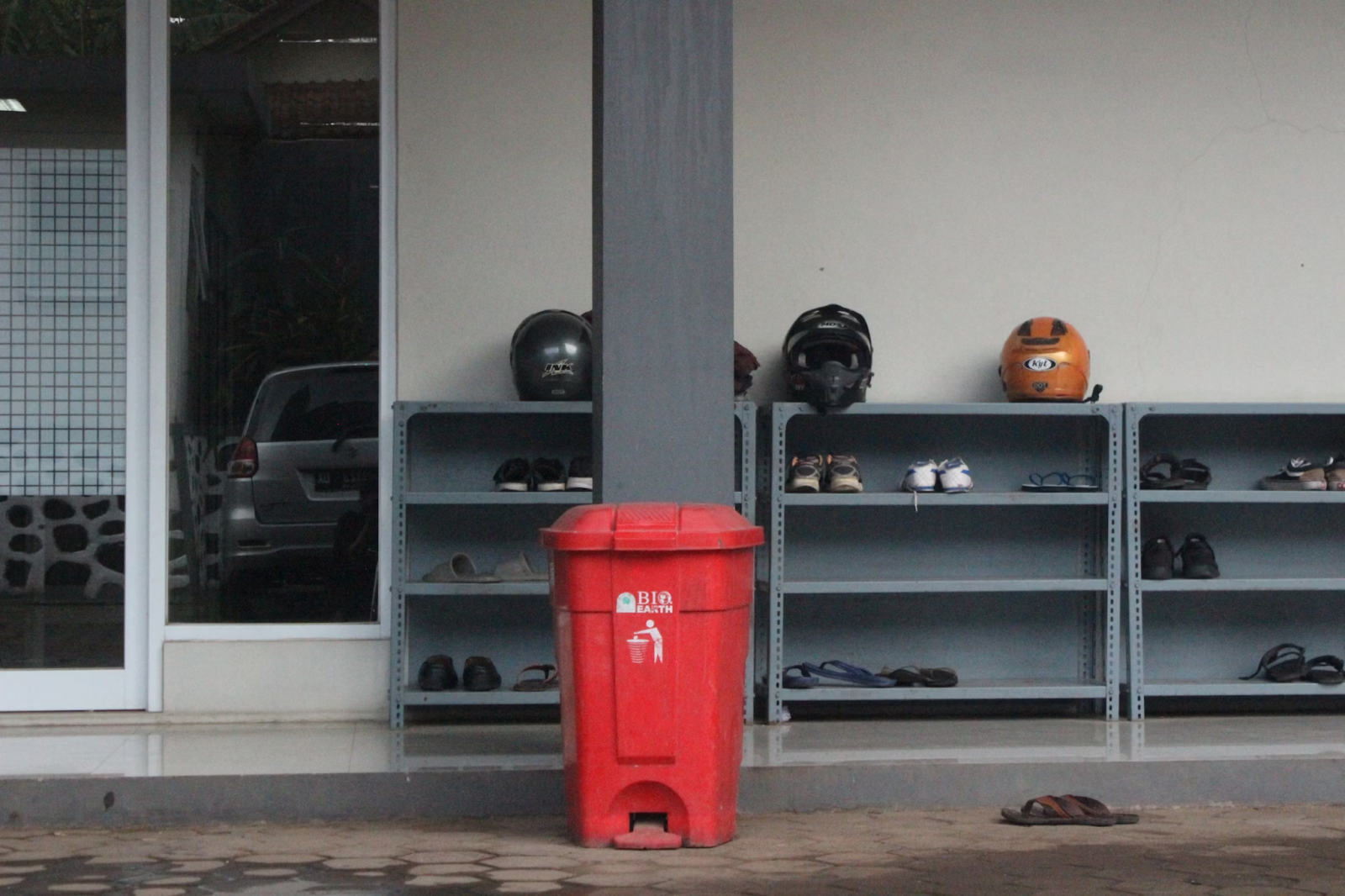Comments
- No comments found

In the bustling hub of workplace activity, piles of unwanted office materials often go unnoticed.
Yet, the impact of haphazard disposal lingers long after papers are shredded and old electronics are discarded. For small business owners and office managers, the task of ridding spaces of clutter is not simply a chore—it's a pivotal aspect of maintaining operational efficiency, respecting the environment, and reinforcing a brand's values. In this detailed exploration, we will decipher the intricacies of disposing of office materials with a forward-thinking lens. We'll explore the various types of materials commonly found in the office, dismantle the myths of what happens when we casually toss aside our used goods, and outline simple yet effective strategies to turn 'waste' into a valuable, eco-friendly asset.

Before we discuss the steps necessary to rid your office of unwanted materials, it's crucial to understand the myriad forms these materials might take.
Unwanted office supplies and equipment can span from the ubiquitous (think paper and printer cartridges) to the often overlooked (like tangled cords and decade-old computers). The environmental impact of these items, when improperly disposed of, can be substantial, especially when considering the scale of waste that even a small office can produce.
We typically encounter three main categories of office waste:
This includes any electronic device that is no longer functioning or has been deemed obsolete. Disposing of these items incorrectly can release harmful toxins into the environment, causing severe damage. Yet, they are also a treasure trove of recoverable materials, from precious metals to reusable parts.
Even as the world digitizes, the office still generates a substantial amount of paper and cardboard waste. The challenge here is managing volume and ensuring sensitive information is adequately destroyed, drawing attention to the need for secure shredding services.
When redecorating or upgrading office space, old furniture is frequently replaced. The sheer size and rigidity of these items often complicate their disposal, but they can often be repurposed through donation or recycling initiatives.
The casual disposal of outdated technology or redundant furniture carries a cost beyond the service fee for the refuse collector.
When e-waste is not properly processed, it can contaminate soil and groundwater with toxic substances. Similarly, the production of paper and cardboard waste not only contributes to deforestation but the bleaching process in paper production can release dioxins, a class of highly toxic chemicals, into the water supply.
Thus, the scope of environmental damage extends well beyond the confines of the office, with ripple effects that touch communities and ecosystems alike.

Hiring professionals to manage document destruction and e-waste disposal extends beyond mere convenience; it epitomizes a commitment to sustainability, security, and corporate responsibility. These specialized services ensure that sensitive information, contained within documents and electronic devices, is rendered irrecoverable during paper shredding, safeguarding against data breaches that could potentially tarnish a brand’s reputation. Furthermore, by adhering to environmentally responsible disposal practices, companies can significantly reduce their ecological footprint. Professional e-waste disposal services proficiently extract valuable materials for recycling, diverting harmful substances from landfills, and reducing the demand for virgin resources. This conscientious approach to disposing of office waste not only aligns with global sustainability goals but also positions a brand as an environmentally mindful leader in its industry.
A core element of a sustainable business model is the careful consideration of how we eliminate our business byproducts. By adopting strategic disposal methodologies, we can vastly reduce our environmental footprint.
An easily accessible and widely encouraged solution is recycling. Organizations of all sizes can benefit from establishing partnerships with recycling facilities that specialize in the material of concern. Electronic recyclers, for example, often provide collection services for old devices, ensuring items are broken down in a safe and environmentally friendly manner.
Another potent approach is directed donation. When office goods are still serviceable, local charities or non-profits can be willing recipients. Not only does this extend the life of the product, but it also fosters community goodwill and potentially offers your business a tax deduction.
Across the globe, e-waste recycling centers have sprung up to cater to the specific nuances of discarding electronic equipment. These dedicated facilities not only disassemble the items into constituent parts for recycling but also facilitate the repurposing of functional devices for those in need.

By consistently adopting eco-responsible disposal practices, businesses stand to gain more than just an empty storeroom; they reap a suite of benefits that transcend mere waste management.
One of the most compelling advantages is the positive impact on the environment. Each component recycled or reused represents a lessened burden on natural resources and an inch closer to a more circular and sustainable model of production and consumption.
Though the initial costs associated with eco-friendly disposal may appear steeper, the long-term effects on a company's bottom line are often positive. Implementing reuse and recycling strategies can lead to cost savings through a reduction in the purchase of new materials and potential energy savings.
Adopting a green disposal policy also carries intangible benefits, particularly in the realm of brand perception. A company that prides itself on ethical practices, including waste management, can attract a loyal customer following and maintain a competitive edge in an increasingly eco-conscious marketplace.
A successful office material disposal plan hinges on meticulous planning, awareness, and collaboration across all departments. It begins with conducting a thorough audit of existing office materials to identify what needs to be discarded, donated, or recycled. This audit not only helps in understanding the scale of the task at hand but also in setting actionable goals for minimizing waste generation in the future. Training and educating staff about the importance of responsible disposal and recycling is crucial, as it fosters an environmentally conscious workplace culture. Establishing clear guidelines for disposal, including designated bins for recycling and schedules for shredding and e-waste collection, ensures seamless execution. Collaboration with certified disposal and recycling services guarantees that materials are handled in compliance with regulatory standards, maximizing the environmental benefit. Lastly, tracking progress and celebrating milestones can motivate continued commitment to sustainable disposal practices, making it a fundamental aspect of the company’s operational ethos.
In the intricate ecosystem of today's business operations, the disposal of office materials transcends mere operational tactics; it embodies a strategic approach reflecting a corporation's core values and its commitments to sustainability, efficiency, and social responsibility. Far from being an ancillary concern, the way in which a company handles its discards speaks volumes about its stance on environmental stewardship, ethical practices, and its vision for a sustainable future. By championing responsible disposal methods and integrating eco-friendly practices into the very fabric of business operations, organizations not only mitigate their environmental impact but also forge a path toward a more sustainable and socially responsible business model. This commitment to conscientious disposal and recycling is not merely a nod to regulatory compliance but a demonstrable effort to contribute positively to global sustainability goals, enhance community well-being, and ensure the longevity and respect of the brand in the marketplace.
Leave your comments
Post comment as a guest